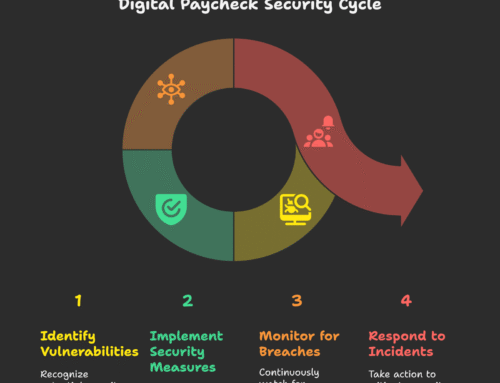In today’s fast-paced digital world, the role of human resources (HR) has expanded far beyond recruitment and employee management. HR professionals now deal with vast amounts of data, compliance requirements across global jurisdictions, and the need to build a secure, efficient online presence for their organizations. Leveraging the right technologies has become crucial, and proxies are emerging as an essential tool for modern HR teams.
Proxies, which act as intermediaries between devices and the internet, are transforming how HR departments operate. By ensuring secure browsing, enabling access to geo-restricted content, and improving data collection processes, proxies streamline HR functions and drive better decision-making. Here’s how proxies play a pivotal role in optimizing HR workflows.
Image by shurkin_son on Freepik
Understanding Proxies and Their Role in HR
Before delving into their applications, it’s essential to understand what proxies are. A proxy server masks your IP address, acting as a middleman between your device and the internet. This helps maintain privacy, enhance security, and even access region-specific data.
There are several types of proxies, including datacenter proxies, residential proxies, and static proxies. Among these, static proxies offer a reliable option for HR professionals who need consistent IP addresses to perform tasks like competitor analysis, job market research, and employee monitoring without interruptions. Static proxies combine the benefits of privacy with stability, ensuring smooth operations for HR teams.
Enhancing Recruitment Processes with Proxies
One of the most time-consuming aspects of HR is talent acquisition. Finding the right candidates often requires navigating online job boards, social media platforms, and recruitment sites. Proxies offer a range of benefits to streamline this process.
1. Accessing Global Talent Pools
Many job boards and candidate profiles are restricted to certain geographic locations. Proxies enable HR teams to bypass these geo-restrictions, allowing them to access talent pools worldwide. This is particularly beneficial for organizations with a global presence or remote work opportunities.
For instance, an HR team in the U.S. may use proxies to view job listings and profiles on European platforms, ensuring they don’t miss out on top-tier talent simply due to regional limitations.
2. Competitor Insights and Benchmarking
Proxies allow HR professionals to monitor competitors discreetly. By using a static proxy, HR teams can access job postings, salary benchmarks, and hiring trends from competitors without revealing their identity. This information can inform better recruitment strategies and help attract high-quality candidates.
3. Localized Job Advertisements
Localization is critical when advertising job openings in specific regions. Proxies make it possible to simulate browsing from the target location, ensuring that job advertisements resonate with the local audience. This can lead to higher application rates and a more diverse pool of candidates.
Improving Data Security in HR Operations
HR departments handle a vast amount of sensitive information, from candidate resumes to employee performance data. Ensuring the security of this information is paramount, and proxies can provide the protection HR teams need.
1. Protecting Candidate and Employee Data
Using proxies adds an additional layer of encryption, making it harder for malicious actors to intercept sensitive information during online recruitment processes. For example, when conducting background checks or accessing third-party platforms, proxies ensure that data transmission remains secure.
2. Securing Remote HR Operations
As remote work becomes the norm, HR teams are increasingly reliant on online platforms to manage workflows. Proxies enable secure access to HR systems, even from remote locations, reducing the risk of unauthorized access or data breaches.
3. Mitigating Cyber Threats
HR platforms and portals are prime targets for phishing and malware attacks. Proxies, especially static proxies, act as a shield against such threats, ensuring uninterrupted and secure access to critical HR tools and databases.
Streamlining Employee Engagement and Monitoring
Employee engagement is key to fostering a positive workplace culture, and proxies can help HR professionals implement strategies that drive employee satisfaction.
1. Anonymous Feedback Collection
Proxies anonymize online interactions, making it possible for employees to submit honest feedback without fear of reprisal. This anonymity can encourage more candid insights, which HR teams can use to improve workplace policies and practices.
2. Monitoring Compliance Across Locations
For organizations operating in multiple countries, ensuring compliance with local labor laws is a significant challenge. Proxies allow HR teams to monitor region-specific resources and regulations discreetly, ensuring that the organization remains compliant with all legal requirements.
3. Accessing Region-Specific Resources
Sometimes, HR teams need to research regionally specific resources, such as local training programs or employee engagement strategies. By using a static proxy, HR professionals can access such information without revealing their location or intentions.
Boosting HR Analytics and Decision-Making
Data-driven decision-making is reshaping HR practices. By leveraging proxies, HR teams can collect and analyze data more effectively, driving informed strategies that benefit the organization.
1. Market Trends and Labor Insights
Proxies enable HR teams to scrape data from job markets, analyze hiring trends, and identify skills in demand. This information helps HR professionals stay ahead of industry trends and craft competitive recruitment strategies.
2. Testing HR Platforms
When implementing new HR tools or platforms, proxies allow teams to simulate user interactions from different regions. This ensures that the software performs seamlessly for employees and candidates across the globe.
3. Optimizing Workforce Management
Proxies can assist in monitoring workforce performance metrics anonymously, ensuring unbiased evaluations. This data helps HR teams identify areas for improvement and make data-driven decisions to enhance productivity.
Ethical Considerations and Best Practices
While proxies offer immense benefits, HR professionals must use them ethically. Transparent policies and adherence to data protection laws are crucial to maintaining trust among employees and candidates. Selecting the right proxy service is also vital; reputable providers ensure reliability and security.
When choosing proxies for HR tasks, static proxies often stand out due to their stability and consistent performance. For example, services like static proxies provide dependable solutions tailored to the needs of HR departments, combining privacy with seamless functionality.
Conclusion
Proxies are revolutionizing the way HR teams operate in the digital age. From streamlining recruitment and ensuring data security to enhancing employee engagement and driving analytics, proxies provide a versatile solution to the challenges faced by modern HR professionals.
By adopting tools like static proxies, HR departments can navigate the complexities of global recruitment, safeguard sensitive information, and optimize their workforce strategies. As technology continues to evolve, proxies will undoubtedly remain a cornerstone of innovative HR practices.







Leave A Comment